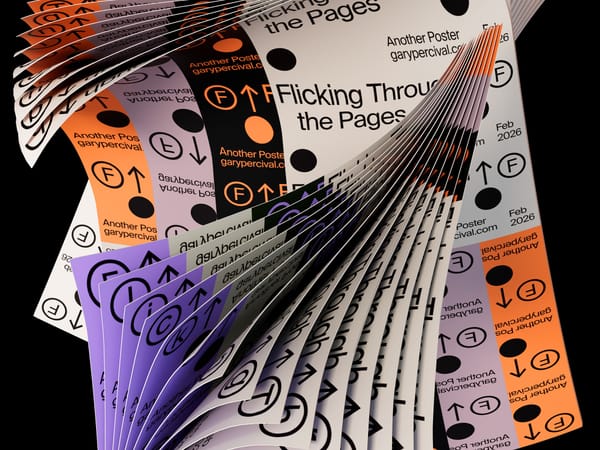Life's Journey: Why Backward Steps Are Still Steps Forward
“Progress isn’t just about moving forward; it’s about expanding in all directions.”

“In our creative careers, we often start with the belief that success will be a steady, upward climb—each project building on the last, skills refining with every new challenge, and our client list growing in parallel.
However, the path to success is rarely linear. It’s filled with unexpected detours and backward steps that, rather than hindering us, can lead to profound growth and new opportunities.”
"Progress isn't just about moving forward; it's about expanding in all directions."
The Myth of Linear Progress
First, let's address the myth of linear progress—the belief that success is a steady climb, with each day better than the last. It's a comforting idea but also deeply flawed and potentially harmful.
In the creative world, progress is rarely linear. You might spend weeks perfecting a new technique, only to find that your next client prefers a completely different style. Or you might land a big project, feeling like you've finally "made it," only to struggle with imposter syndrome and self-doubt.
These moments can feel like regressions, but they're actually integral parts of a richer, more complex journey.
Redefining Progress
To truly appreciate our journey, we need to redefine progress. Progress isn't just about moving forward; it's about expanding in all directions. It's about depth as well as height, breadth as well as length.
When you revisit the basics, you're not regressing—you're deepening your understanding. When you pause to reflect on a failure, you're not stalling—you're broadening your perspective. These moments, which might feel like setbacks, are actually expanding your creative universe.
The Value of Detours
In design, we often talk about the importance of white space—the areas of a composition that are intentionally left blank. These spaces aren't empty; they're crucial for balance, emphasis, and overall aesthetic appeal.
Similarly, the apparent "blank spaces" in your career—the times when you feel stuck or like you're moving backwards—serve a vital purpose. They provide contrast, allowing you to appreciate your progress more fully.
They offer breathing room, giving you space to reflect, recharge, and realign your goals.
Learning from Failures
As creatives, we're intimately familiar with failure. Every sketch that doesn't quite capture our vision, every client pitch that falls flat, every project that doesn't turn out as planned—these are all forms of failure. But they're also our greatest teachers.
"When we examine our failures, we gain invaluable insights. We learn what doesn't work, which is often just as important as knowing what does."
We discover our blind spots and areas where we need to improve or seek help.
We build resilience, learn to bounce back from disappointment, and keep pushing forward.
Each of these lessons makes us stronger, more skilled, and more adaptable. They're not steps backwards—they're the foundation for our future success.
The Power of Pivots
Sometimes, what feels like a step backwards is actually a pivot—a change in direction that opens up new possibilities. Maybe you've been focusing on logo design, but a step into illustration leads you to discover a passion for children's book artwork.
Or perhaps a challenging client project pushes you to explore new software, expanding your skill set in unexpected ways.
These pivots, while disorienting at first, can lead to exciting new paths in your creative journey. They're not deviations from your path—they're expansions of it.
Embracing Cycles
Nature doesn't move in a straight line—it moves in cycles. Seasons change, tides ebb and flow, and even the mightiest trees have periods of growth and dormancy. Our creative lives follow similar patterns.
There will be times of intense productivity when ideas flow freely, and projects come together seamlessly. There will also be dry periods—times when inspiration seems distant and progress feels slow. Both are natural and necessary.
Instead of fighting these cycles, learn to work with them. Use your high-energy periods to push forward on challenging projects.
Embrace your slower times for reflection, learning, and self-care. By honouring these natural rhythms, you'll create a more sustainable and fulfilling creative practice.
The Importance of Rest
In our hustle culture, taking a break can feel like a step backwards. But rest is not the opposite of progress—it's an essential part of it. Just as athletes need recovery time to build strength, creatives need downtime to recharge their creative batteries.
When you step back to rest, you're not losing ground. You're giving your mind time to process ideas, make unexpected connections, and generate fresh insights.
You're allowing your creative well to refill, ensuring you have the energy and inspiration for your next big push forward.
Reframing Setbacks
When faced with an apparent setback, try reframing it. Instead of seeing it as a step backwards, view it as a step inward. You're not retreating; you're diving deeper into your creative self.
Did a client reject your design? That's an opportunity to refine your skills and better understand your audience. Are you struggling with a new technique? That's a chance to build patience and perseverance. Lost a big project? That's an opening to reassess your goals and realign your efforts.
By reframing these experiences, you transform apparent setbacks into valuable parts of your journey.
The Long View
In the day-to-day grind of creative work, it's easy to lose perspective. A rejected proposal or a difficult project can feel like a major setback. But when you zoom out and take the long view, these moments often appear as mere blips in a much larger, richer story.
Think back to where you were five years ago. Chances are, despite any setbacks, you've grown tremendously since then. Your skills have improved, your network has expanded, and your understanding of your craft has deepened.
Now imagine where you might be five years from now. The steps you're taking today—forward, backwards, or sideways—are all contributing to that future self.
Embracing Uncertainty
As creatives, we deal with uncertainty. Every blank canvas, every new project brief, and every creative challenge is an exercise in facing the unknown. This uncertainty can be uncomfortable, often making us feel like we're stumbling backwards. But it's also the source of our greatest strengths: adaptability, innovation, and resilience.
By embracing uncertainty, we open ourselves to new possibilities. We become more comfortable with experimentation and risk-taking. We learn to trust our creative instincts and find opportunity in ambiguity.
These skills are invaluable in an ever-changing creative landscape.
Celebrating All Steps
Finally, let's talk about celebration. We're quick to celebrate our forward steps—the successful projects, the client wins, the moments of recognition. But what if we celebrated all our steps?
Celebrate the times you had the courage to try something new, even if it didn't work out. Celebrate the moments you chose to rest over burnout. Celebrate the lessons learnt from failure, the insights gained from reflection, and the strength built through perseverance.
By acknowledging and appreciating all parts of your journey, you create a more balanced and fulfilling creative life.
Conclusion
Life’s journey, especially in the creative field, isn’t about constant forward motion. It’s about embracing growth in all its messy, non-linear glory. Every step—whether forward, backward, or sideways—expands your skills, deepens your understanding, and broadens your perspective.
So, when you feel like you’re taking a step back, pause and reflect. You may find that you’re not moving backwards at all but simply taking a different kind of step forward. Embrace it, learn from it, and keep moving on your unique, beautifully imperfect creative path.
Remember, every step is part of the journey. Make them count, make them meaningful, and, most importantly, make them yours.



